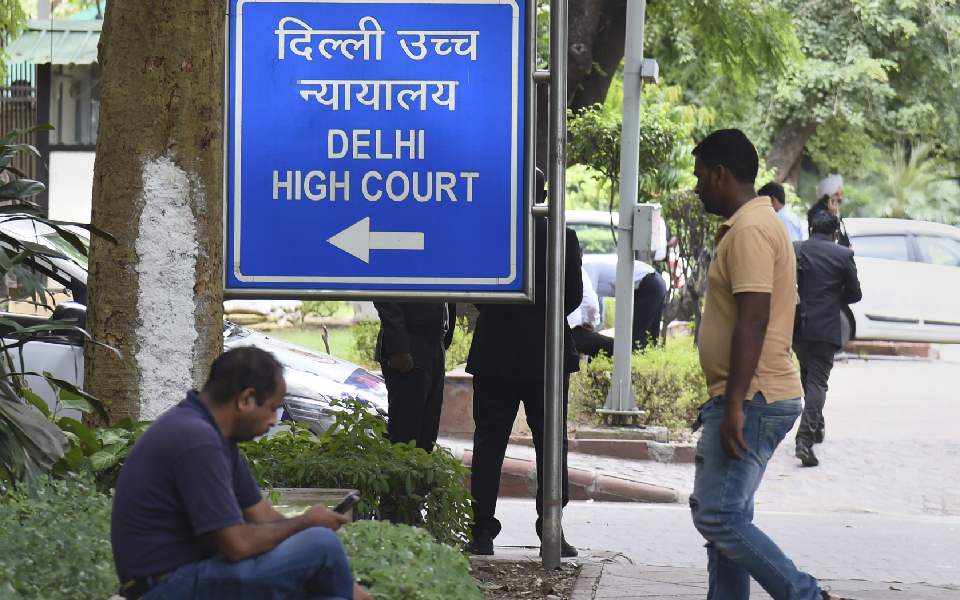New Delhi, Jun 19: The Delhi High Court has sought the stand of the Centre on a petition by a pharmaceutical company challenging the government's decision to ban manufacture, sale and distribution for human use certain Fixed Dose Combination (FDC) drugs.
FDC drugs are those which contain a combination of two or more active pharmaceutical ingredients (APIs) in a fixed ratio.
While issuing notice on three petitions by Glenmark Pharmaceuticals Ltd against the ban, the court directed the FDC drugs produced by the petitioners that are already in the distribution channel shall not be withdrawn and no coercive steps will be taken against them.
The petitioner was producing FDC drugs under the brand names Glencoff Q, Ascodex Dx Syrup, Ascoril-C Syrup and others, the court noted.
The government had announced a ban on 14 FDC drugs on June 2 this year on the recommendations of an expert committee, saying there was "no therapeutic justification" for these medicines and they may involve "risk" to people.
The court clarified no fresh manufacture of the drugs would take place till July 3, the next date of hearing, and asked the petitioner to file the details of their stock as well as the medicines in circulation.
"It is directed that the drugs which are already in the distribution channel shall not be withdrawn. However, no fresh manufacture of the drug will take place till the next date of hearing. In addition, no coercive steps will be taken against the petitioner for the drugs which are already in the distribution channel," ordered a vacation bench of Justices Jasmeet Singh and Vikas Mahajan last week.
The court also noted it had granted interim protection in 2018 to another pharmaceutical company for the drugs already in the distribution network in "somewhat similar circumstances".
It granted two weeks to the central government counsel to file a response to the petitions.
The petitioner said it was manufacturing the FDC drugs in question for the last over 30 years.
It claimed the notification banning the FDCs only stated they may involve risk to human beings without specifying the reasons, extent and the nature.
The banned drugs included those used for treating common infections, cough and fever -- combinations such as Nimesulide + Paracetamol dispersible tablets, Chlopheniramine Maleate + Codeine Syrup, Pholcodine +Promethazine, Amoxicillin + Bromhexine and Bromhexine + Dextromethorphan + Ammonium Chloride + Menthol, Paracetamol + Bromhexine+ Phenylephrine + Chlorpheniramine + Guaiphenesin and Salbutamol + Bromhexine.
The expert committee had said there is "no therapeutic justification for this FDC (fixed dose combination) and the FDC may involve risk to human beings. Hence, in the larger public interest, it is necessary to prohibit the manufacture, sale or distribution of this FDC under section 26 A of the Drugs and Cosmetics Act, 1940. In view of the above, any kind of regulation or restriction to allow for any use in patients is not justifiable".
"And whereas, on the basis of the recommendations of the Expert Committee and the Drugs Technical Advisory Board, the Central Government is satisfied that it is necessary and expedient in public interest to regulate by way of prohibition the manufacture for sale, sale and distribution for human use of the said drug in the country," the government notification said.
In 2016, the government had announced a ban on manufacture, sale and distribution of 344 drug combinations after an expert panel, set up at the behest of the Supreme Court had stated they were being sold to patients without scientific data. The order was challenged by the manufacturers in court.
The currently banned 14 FDCs are part of those 344 drug combinations.
Let the Truth be known. If you read VB and like VB, please be a VB Supporter and Help us deliver the Truth to one and all.
Jerusalem, Nov 5: Israeli Prime Minister Benjamin Netanyahu on Tuesday dismissed his popular defence minister, Yoav Gallant, in a surprise announcement that came as the country is embroiled in wars on multiple fronts across the region.
Netanyahu and Gallant have repeatedly been at odds over the war in Gaza. But Netanyahu had avoided firing his rival. Netanyahu cited “significant gaps” and a “crisis of trust” between the men in his Tuesday evening announcement.
“In the midst of a war, more than ever, full trust is required between the prime minister and defence minister,” Netanyahu said. “Unfortunately, although in the first months of the campaign there was such trust and there was very fruitful work, during the last months this trust cracked between me and the defence minister.”
In the early days of the war, Israel's leadership presented a unified front as it responded to Hamas' October 7, 2023, attack. But as the war dragged on and spread to Lebanon, key policy differences have emerged. While Netanyahu has called for continued military pressure on Hamas, Gallant had taken a more pragmatic approach, saying that military force has created the necessary conditions for a diplomatic deal that could bring home hostages held by the Hamas group.
Gallant, a former general who has gained public respect with a gruff, no-nonsense personality, said in a statement: “The security of the state of Israel always was, and will always remain, my life's mission."
Gallant has worn a simple, black buttoned shirt throughout the war in a sign of sorrow over the October 7 attack and developed a strong relationship with his US counterpart, Defence Secretary Lloyd Austin.
A previous attempt by Netanyahu to fire Gallant in March 2023 sparked widespread street protests against Netanyahu. He also flirted with the idea of dismissing Gallant over the summer but held off until Tuesday's announcement.
Gallant will be replaced by Foreign Minister Israel Katz, a Netanyahu loyalist and veteran Cabinet minister who was a junior officer in the military. Gideon Saar, a former Netanyahu rival who recently rejoined the government, will take the foreign affairs post.
Netanyahu has a long history of neutralising his rivals. In his statement, he claimed he had made “many attempts” to bridge the gaps with Gallant.
“But they kept getting wider. They also came to the knowledge of the public in an unacceptable way, and worse than that, they came to the knowledge of the enemy - our enemies enjoyed it and derived a lot of benefit from it,” he said.





